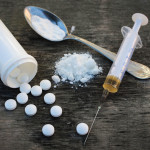If an HIV vaccine were to become widely available, many high-risk populations would still have difficulty accepting it, according to researchers at the University of California in Los Angeles (UCLA). Their findings are published in the December/January issue of Health Services Research, a peer-reviewed medical journal.
For the study, researchers recruited a random sample of 1,100 high-risk Los Angeles County adults from needle-exchange programs, Latino-focused primary care health centers and clinics for sexually transmitted infections. Through a method called conjoint analysis, researchers gave participants cards representing various degrees of HIV vaccine efficacy, side effects, cost and how long it would protect them from contracting the virus. For example, a card might describe an HIV vaccine that is 99 percent effective with minor side effects and a $250 price tag.
Overall, participants did not fully accept an HIV vaccine, giving it a mean score of 55 out of 100. Efficacy was the most important acceptability factor, followed by potential side effects and out-of-pocket cost.
While 10 percent of participants said they would engage in more high-risk activities after being vaccinated, they were less likely to do so if the vaccine was only 50 percent effective compared with 99 percent.
Advertisement
Advertisement
Advertisement






1 Comment
1 Comment